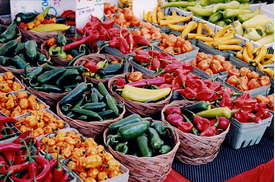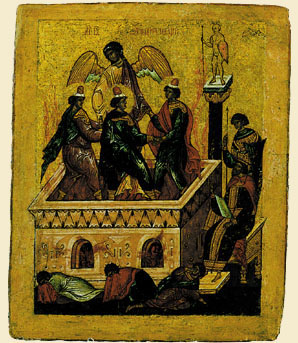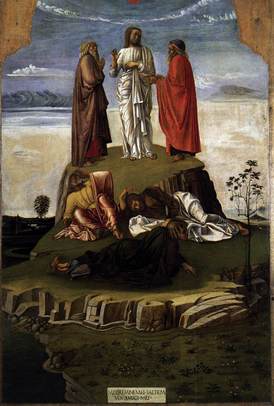Lost
but not forgotten in Catholic practice are the observances for Autumn Ember
Days, the “Four Seasons.” Other ember days are prayed in
December (3rd week of Advent), Lent (after the 1st Sunday of Lent) and after
Pentecost but in its octave. The autumn ember days are observed on the
Wednesday, Friday and Saturday following the Triumph of the Holy Cross, September 14. This year
the ember days are September 16, 18, & 19. Tradition has also called this
period of prayer, procession, fasting and partial abstinence the Michaelmas
Ember Days
given the proximity to the liturgical memorial of Saint Michael the Archangel
on September 29th.

The occasion for Ember Days are the seasons of the year.
As you would think, each season we give ought to give thanks to God for graces
received and the fruits of the harvest. Ember days are rich in theology and
culture going back a very long time in the Catholic Church, one can argue to
the very early Church where the first fruits were given to the Lord. One might also recall the Jewish customs of prayer and
fasting and purification in the autumn. Those with a strong liturgical bent will recall that before the “reform” of the
missal following the Second Vatican Council the Church had a richer and deeper
understanding of the nature of ember days: each day had their own Mass,
Scripture readings from both Testaments, processions and prayers. Today, ember days are all but forgotten save for a small number of people who bother to read ritual books and liturgical theology and who think these things have import for the contemporary life of the Church.
As we delve
more deeply into our Catholic faith and the various liturgical observances of
thanksgiving, conversion and supplication, we might consider spending time
during these ember days in gratitude to God for what He’s given for our earthly
sustenance asking Him for the grace of conversion. Additionally, I am reminded
with these ember gestures of the recent emphasis on the environment and ecology viz. the faith that Pope Benedict said last week: “Today
more than ever people must be helped to see in creation something more than a
simple source of wealth or exploitation in man’s hands. The truth is that when
God, through creation, gave man the keys to the earth, he wanted him to use
this great gift responsibly and respectfully, making it fruitful. The human
being discovers the intrinsic value of nature if he learns to see it for what
it really is, the expression of a plan of love and truth that speaks to us of
the Creator and of his love for humanity, which will find its fulfillment in
Christ, at the end of time. In this context it is important to reiterate the
close relationship between protection of the environment and respect for the
ethical requirements of human nature, because when human ecology is respected
within society, environmental ecology also benefits.”
Living
the ember days more fully would allow for a renewed interest in praising God
for creation, the concern of humanity’s proper use of creation and our keen stewardship of nature for future generations.
Cf. “Order of Blessing on the Occasion of Thanksgiving for the Harvest” (Book of Blessings, nos 1007-1023) or in the 3rd volume of Fr Weller’s Roman Ritual. Two prayers from the Maronite book of blessings read:
May God bless + this fruit, those who bring it, present it, and share in it. May the mercy of the Holy Trinity, Father, Son, and Holy Spirit, come down upon those who labored to produce this fruit and those who were in any way associated with them. Praised be to God, now and for ever. Amen.
And
O Lord, your right hand blessed the few loaves of bread in the desert, and through the hands of the prophet Elijah you blessed the jar of wheat and the jug of oil in the house of the widow. May your blessing now come down, through my right hand bless + this house (granary or this wheat or grain) and all the food that it kept here. As you blessed the homes and the reserves of the just of old –Abraham, Isaac, Jacob, Joseph, Job, and David–shower your abundant blessings upon the yield of your worshipers. We praise you, now and for ever. Amen.
O Lord, save your people and bless + your inheritance. Feed them, and carry them for ever.



